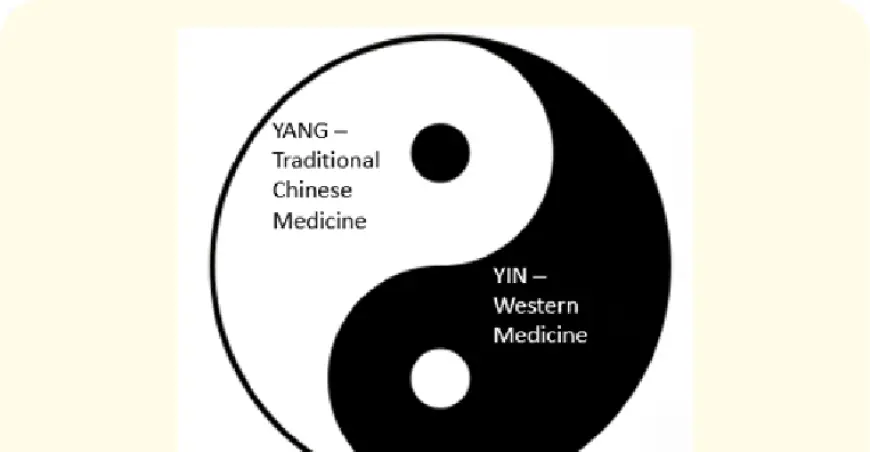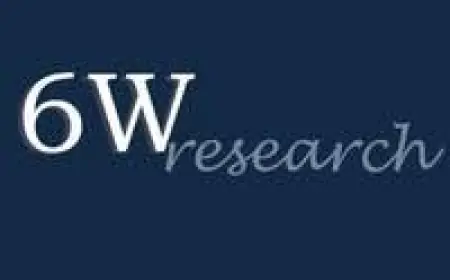How Does Yin Yang Theory Influence Traditional Chinese Medicine?

The Yin-Yang Theory is one of the fundamental principles of Traditional Chinese Medicine (TCM). It represents the dynamic balance of two opposing yet complementary forces that exist in nature and within the human body. This ancient concept guides TCM practitioners in diagnosing illnesses, understanding disease patterns, and formulating treatment strategies.
In this article, we will explore how yin yang theory in chinese medicine influences TCM, its application in acupuncture, herbal medicine, and holistic healing, and its significance in achieving optimal health and well-being.
What is Yin-Yang Theory?
The Yin-Yang concept originates from ancient Chinese philosophy, describing the universe's dual nature. The two energies represent:
-
Yin: Cool, dark, passive, and nourishing qualities. It is associated with femininity, the moon, night, stillness, and internal organs.
-
Yang: Warm, bright, active, and energizing forces. It corresponds to masculinity, the sun, day, movement, and external functions.
According to Yin-Yang balance theory, good health is maintained when Yin and Yang energies are in harmony. An imbalance leads to disease, pain, and dysfunction.
Yin-Yang Interactions
The relationship between Yin and Yang follows four key principles:
-
Opposition: Yin and Yang are contrasting forces (e.g., cold vs. heat, rest vs. movement).
-
Interdependence: One cannot exist without the other (e.g., night cannot exist without day).
-
Mutual Consumption: When one becomes excessive, it depletes the other (e.g., excessive activity consumes energy).
-
Transformation: Yin and Yang can transform into each other under certain conditions (e.g., day turns into night).
How Yin-Yang Theory Influences Traditional Chinese Medicine
1. Diagnosis and Disease Patterns
In TCM, illnesses are categorized based on Yin and Yang imbalances. Some common patterns include:
-
Yin Deficiency: Symptoms include dry skin, hot flashes, night sweats, restlessness, and insomnia.
-
Yang Deficiency: Manifests as cold extremities, fatigue, weak digestion, and slow metabolism.
-
Excess Yin: Leads to cold sensations, sluggish digestion, and fluid retention.
-
Excess Yang: Causes heat-related symptoms like inflammation, headaches, irritability, and high blood pressure.
By identifying Yin-Yang imbalances, TCM practitioners tailor treatments to restore equilibrium.
2. Yin-Yang in Acupuncture
Acupuncture is a core TCM therapy that applies Yin-Yang Theory to restore balance within the body. This is done by:
-
Stimulating specific acupuncture points to enhance either Yin or Yang energy.
-
Regulating Qi flow to harmonize internal organs and meridians.
-
Using cooling acupuncture techniques for excess Yang conditions and warming techniques for Yang deficiency.
3. Herbal Medicine and Yin-Yang Balance
TCM herbal prescriptions are based on Yin-Yang principles:
-
Yin-nourishing herbs: Goji berries, Rehmannia, and Chrysanthemum help with Yin deficiency.
-
Yang-boosting herbs: Ginseng, Cinnamon, and Ginger strengthen Yang energy.
-
Balanced formulas: Many herbal blends contain both Yin and Yang elements to maintain equilibrium.
4. Dietary Therapy According to Yin-Yang
Food plays a crucial role in TCM healing. Certain foods either cool or warm the body based on their Yin-Yang nature:
-
Yin-enhancing foods: Cucumbers, watermelon, leafy greens, tofu.
-
Yang-enhancing foods: Garlic, black pepper, nuts, red meat.
A TCM practitioner recommends dietary changes based on the patient’s Yin-Yang imbalance.
5. Qi Gong and Tai Chi: Yin-Yang in Movement
Qi Gong and Tai Chi are ancient practices that integrate Yin-Yang principles through:
-
Slow, flowing movements that cultivate Yin energy (calm, grounding, stillness).
-
Fast, dynamic actions that enhance Yang energy (circulation, strength, vitality).
These exercises help maintain physical and mental harmony.
How to Apply Yin-Yang Theory in Daily Life
1. Maintain a Balanced Routine
-
Balance work (Yang) and rest (Yin).
-
Get enough sleep to replenish Yin energy.
-
Engage in physical activity to stimulate Yang energy.
2. Adjust Lifestyle According to Seasons
-
Winter (Yin Season): Keep warm, eat nourishing foods, and rest more.
-
Summer (Yang Season): Stay hydrated, eat cooling foods, and stay active.
3. Manage Emotions for Mental Balance
Emotions influence Yin-Yang harmony:
-
Stress and anger increase Yang, leading to tension and headaches.
-
Depression and sadness weaken Yang, resulting in low energy.
-
Meditation, deep breathing, and relaxation techniques restore balance.
4. Use Yin-Yang Breathing Techniques
Breathwork balances Qi energy:
-
Slow, deep breathing activates Yin energy, promoting relaxation.
-
Fast, energizing breaths boost Yang energy, increasing alertness.
Conclusion
The Yin-Yang Theory is the foundation of Traditional Chinese Medicine, influencing diagnosis, treatment, and holistic well-being. By understanding how Yin and Yang interact, individuals can restore balance, prevent illness, and maintain vitality.
Through acupuncture, herbal medicine, dietary therapy, movement practices, and emotional regulation, TCM harmonizes Yin-Yang forces within the body. Embracing these principles in daily life helps achieve optimal health, longevity, and holistic wellness.
What's Your Reaction?
 Like
0
Like
0
 Dislike
0
Dislike
0
 Love
0
Love
0
 Funny
0
Funny
0
 Angry
0
Angry
0
 Sad
0
Sad
0
 Wow
0
Wow
0


















































